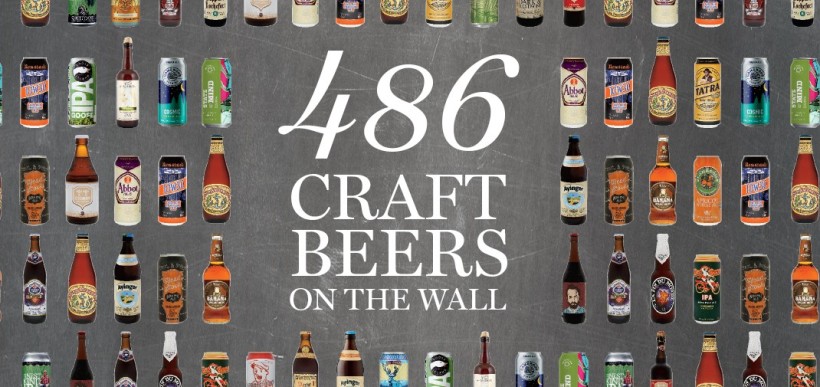The LCBO doesn’t have a definition for “craft beer” either
{Now this seems like a very reasonable response, and I’m aware that, as always happens when I write on this topic, some will be quick to say “Who gives a shit? It’s all just beer, drink what you like.” To those folks, I’ll say “Why do you keep reading my blog?” but also “I give a shit,” because I think it matters. I find that this flaky relationship with the definition of the category problematic at best. Given the LCBO’s efforts to educate consumers with a fantastic website and an expensive print publication, plus tastings and little tasting seminars, the failure to draw distinction between large breweries and independent ones is upsetting. At best, it seems inconsistent with the educational efforts and a little lazy and, at worst, it looks like another deliberate blurring of the “craft” line to be able to help larger brewers masquerade as craft beer.
Apparently not much.
But then there are such instances, like within the “craft beer” features in the pages of the glossy Food & Drink magazine or on the LCBO’s generally excellent site, where it is clear at least some thought has gone into the categorization of these beverages. These too are fun to bring up on twitter to rankle craft beer loyalists, but one recent instance; this Salute to Craft; got me to thinking. Here is an example where Mill Street, after a Toronto craft beer pioneer and now a subsidiary of Anheuser-Busch InBev SA/NV, has been listed among “craft beers.”
I have seen and shared a few examples where, for instance, the signs denoting the “craft beer” section of the LCBO are confusing, misleading, or sometimes just downright awful. I have literally seen 40s of Olde English put in the “Craft Beer” section.
Published at Wed, 11 Oct 2017 08:50:06 +0000
My own efforts however, the definition of “craft” seems to be something that we still struggle with here in Ontario. It seems, at the LCBO.
I spoke with Christine Bujold, Media Relations Coordinator, Corporate Communications for the LCBO, who agreed that the term craft beer is difficult to define.
I advised Bujold that I can appreciate that the average consumer might think about certain beers “craft” as they appear to fit in that category distinction since most consumers define it–e.g. they know where the brewery is and can visit it, the business is making beer with much more intriguing flavours than many “macro lagers”, etc–but, I inquired, isn’t it somewhat misleading to lump these pseudo craft beers in with the real deal?

If you need to have an exhausting and annoying conversation with a whole lot of beer nerds, bring up the topic of the definition of the word “craft.”

